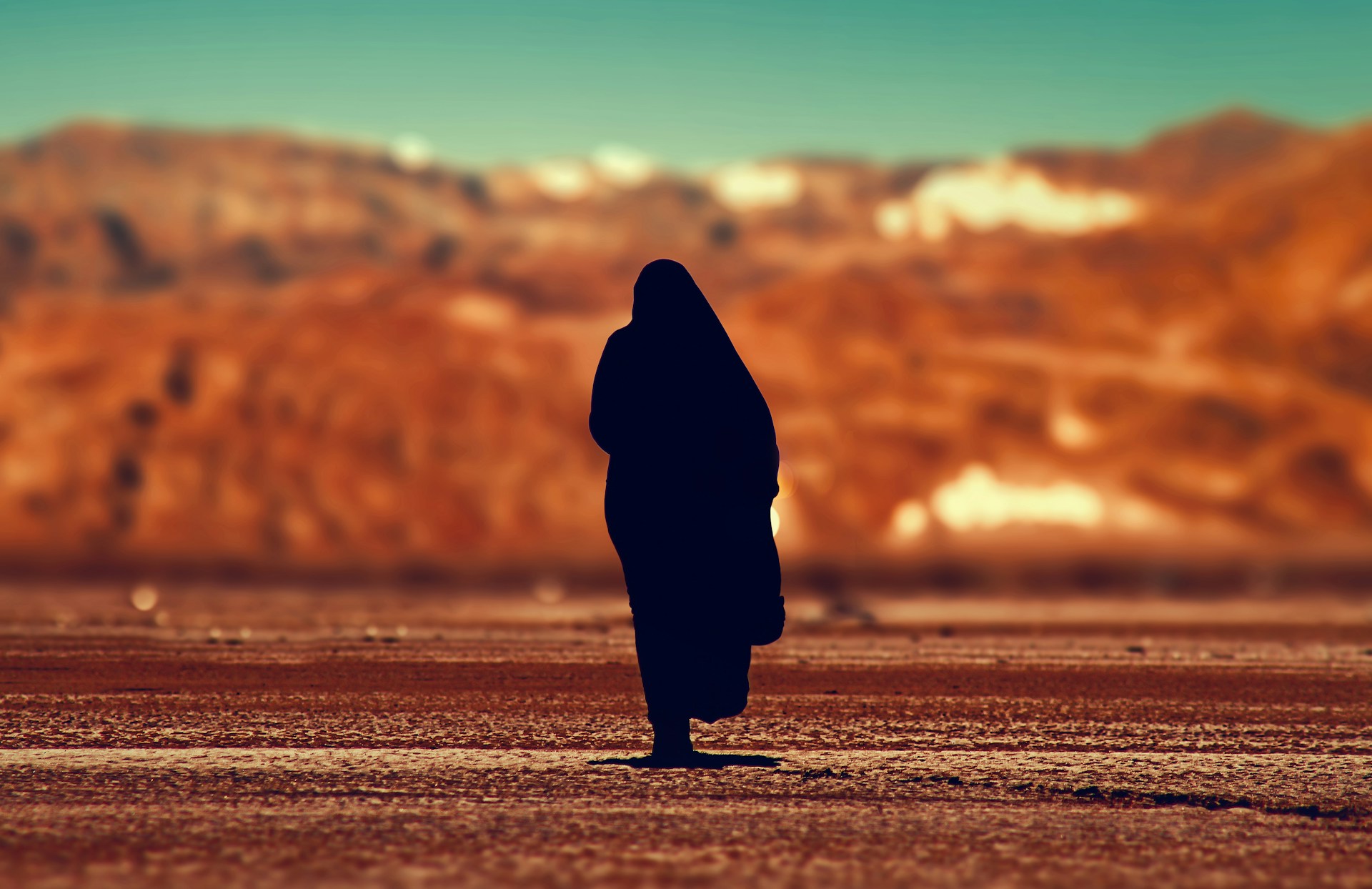Book a Free 45 Minute Discovery call through our book now button or give us a call on 0404430084.

Healing in Silence: Body, Mind, and Spirit through the Islamic Way
Why Muslim Women are more vulnerable to Trauma?


Muslim women may often endure trauma silently due to a combination of cultural expectations, social dynamics, and religious beliefs. Experiences such as family violence, personal loss, and inherited trauma can leave deep emotional scars. Yet, cultural and familial pressures can prevent women from addressing these challenges openly, often out of a sense of duty to maintain family honour or avoid social judgment. In many cases, women may feel that disclosing trauma might be perceived as a personal or familial failing, which leads to bearing these emotional burdens alone rather than seeking help. CMHA NATIONAL. CENTRE FOR MENTAL HEALTH
The stigma surrounding trauma also plays a significant role. In some Muslim communities, traumatic experiences are sometimes dismissed or minimized, with advice often limited to relying on increased faith or prayer. While faith can be a powerful source of resilience, this narrow view may prevent individuals from exploring holistic approaches to healing, which can leave the trauma unprocessed and lingering. Additionally, misconceptions around trauma, such as attributing it to a lack of faith or spiritual weakness, make it difficult for women to acknowledge and seek support, further deepening their isolation. PHILADELPHIA NEIGHBORHOODS. PSYCHOLOGY TODAY
The lack of culturally sensitive trauma care can also exacerbate this issue, as many Muslim women may not find the necessary resources or support systems that respect both their faith and cultural backgrounds. Addressing these gaps requires culturally informed care and community efforts to reduce stigma, helping ensure that women feel safe and supported in addressing their trauma openly and without fear of judgment. HOME
Reconnect with peace and resilience through Healing in Silence. This journey is designed for you, integrating body, mind, and spirit in a safe, faith-centered space. Take the first step toward lasting well-being—reach out today and start healing in a way that honours your path.

Exploring the Connection between Body, Mind, and Spirit through Faith-Based Practices
Islam teaches a holistic view of wellness, where the body, mind, and spirit are intrinsically connected. This balanced approach is grounded in the Quran and Hadith, which emphasize care for physical health, mental clarity, and spiritual alignment as essential to a fulfilling life. Physical health is treated as a responsibility, with the Prophet Muhammad (peace be upon him) advocating for moderation in diet and physical activity as expressions of gratitude to God. Physical well-being supports mental and spiritual resilience, creating a foundation for balanced living.
Spiritual well-being, beginning with a conscious connection to Allah, is encouraged through murāqabah (mindfulness) and tafakkur (reflection). These practices develop self-awareness, helping individuals align their actions and thoughts with Islamic principles. This mindfulness shapes behaviors and thoughts, helping individuals navigate life’s challenges with patience and purpose.
Prayer (salah) and remembrance (dhikr) further enhance mental clarity and emotional stability, reducing stress by grounding the believer in faith and purpose. By uniting these three aspects—body, mind, and spirit—Islam’s approach to wellness becomes a holistic path to health that permeates daily life. Historically, Islamic scholars also emphasized this integration, advocating therapeutic practices in community care settings and hospitals that treated physical and mental conditions within a spiritual framework.
This faith-based framework offers Muslims a timeless, comprehensive path to health, aiming for harmony with oneself and a closer connection to the Creator. For a deeper dive, resources from the Yaqeen Institute and Khalil Center provide extensive insights into these concepts.


Subscribe to our newsletter
Enjoy exclusive special deals available only to our subscribers.

The connection between Body, Mind, and Spirit through Faith-Based Practices
Even though Muslims are blessed with guidance, purpose, and the strength of faith, individual experiences of trauma can leave profound marks. Life's trials—such as personal loss, health crises, or financial hardship—can deeply impact one's mental and emotional well-being, even leading to trauma. These experiences may manifest as unresolved fear, anxiety, or stress that remains long after the events have passed. In Islam, trials are part of divine wisdom, intended to test and strengthen believers; however, the emotional impacts they leave behind, if untreated, can disrupt a person’s connection to themselves and their faith.
The Quran acknowledges that human life will include hardship, as Allah says, “Do you think that you will enter Paradise while you have not yet been tried” (Quran 3:142). This acceptance of trials as part of life does not negate the reality of trauma's impact on the heart and mind. For some, intense experiences can cause feelings of isolation, affecting their relationship with faith and their sense of inner peace. For example, unresolved grief can lead to a state where one might struggle with prayer, feel distant from Allah, or even question their resilience and self-worth.
Islamic teachings encourage believers to take active steps toward healing, honoring the body and mind as trusts from Allah. Trauma, if left untreated, can prevent an individual from fully engaging with their spiritual practices and disrupt the harmony between body, mind, and spirit. Holistic approaches grounded in Islamic principles—such as engaging in murāqabah (mindfulness), tafakkur (reflection), and dhikr (remembrance)—offer pathways to restore this balance. When individuals address trauma through both faith and supportive mental health care, they can find renewed peace and a deeper connection to themselves and to Allah.
Healing is seen as an extension of worship, where the journey to well-being becomes a way of honoring the divine gifts of body, mind, and spirit, allowing individuals to emerge with greater resilience and spiritual fulfillment.


Ready to Begin Your Healing Journey?
Discover the transformative power of integrating Islamic principles with somatic practices. Whether you're seeking personal growth, family healing, or community support, our faith-sensitive coaching services are here to guide you every step of the way.

Reconnect with Your Body, Reclaim Your Well-Being
Motherhood is a profound and life-changing experience. From pregnancy to childbirth and beyond, your body goes through tremendous physical and emotional changes. As a mother, you’ve given so much to your child, but have you had the time to nurture and heal yourself?
The Somatic Healing Coaching for Mothers program is designed specifically for women who have given birth, offering a safe, supportive space to reconnect with your body, process emotions, and heal from the physical and emotional impact of childbirth and motherhood.
Somatic Healing Coaching for Mothers
Who Is This Program For?


Mothers who have recently given birth and are seeking post-birth recovery
Women experiencing stress, anxiety, or overwhelm in motherhood
Mothers looking to heal emotionally and physically after childbirth
Those wanting to reconnect with their bodies after pregnancy and birth
Mothers dealing with postpartum challenges, such as trauma or body image issues
What You Will Learn
What You Will Gain
Why Somatic Healing Coaching for Mothers Works
Childbirth is not just a physical event—it’s a whole-body, whole-life experience. Many mothers are left feeling disconnected, overwhelmed, or unsure of how to heal after giving birth. Traditional approaches often focus solely on the mind, but Somatic Healing Coaching integrates both mind and body, addressing the root of physical and emotional challenges to promote lasting healing.
With our body-centered approach, you will:
Heal from the physical and emotional impact of childbirth
Release stored stress and trauma
Reconnect with your body in a gentle, nurturing way
Build emotional resilience as you navigate motherhood
Rediscover a sense of self beyond motherhood


Deep emotional and physical healing after childbirth
A stronger, more loving connection to your body
Tools to manage stress, anxiety, and overwhelm in daily motherhood
Greater emotional balance and resilience
A renewed sense of self and purpose beyond motherhood
More energy, joy, and vitality in your role as a mother and individual
Motherhood is a transformative journey, but it doesn’t mean you have to do it alone. Our Somatic Healing Coaching for Mothers is here to support you as you heal, grow, and thrive in this new chapter of life. Whether you're recovering from birth, managing postpartum stress, or seeking deeper self-awareness, this program offers the support you need to become the best version of yourself—both as a mother and a woman.
Schedule your free consultation today to explore how Somatic Healing Coaching can help you feel more connected, empowered, and whole.
Postpartum Body Healing
Gentle somatic practices to help your body recover from childbirth, addressing both physical healing and emotional well-being.
Rebuilding Mind-Body Connection
Reconnect with your body after pregnancy and birth, fostering a sense of safety, grounding, and self-compassion.
Emotional Regulation & Resilience
Discover techniques to navigate the emotional highs and lows of motherhood, building resilience to handle stress, sleep deprivation, and new responsibilities.
Healing from Birth Trauma
Work through any lingering emotional or physical trauma from the birth experience in a safe, compassionate environment.
Self-Care Strategies for Busy Moms
Learn simple, effective self-care practices that fit into your busy schedule, helping you nurture yourself as you care for your baby.
Mindful Motherhood
Embrace present-moment awareness with your child, developing the skills to be a more mindful, patient, and connected mother.
Predict the future by creating it
You didn’t come this far to stop

How to Get Started
Are you ready to embark on a journey of growth and transformation? Contact us today to learn more about our coaching services and schedule a free consultation with one of our expert coaches. Together, we can achieve your goals and unlock your full potential.
Our office
Cranbourne Drive
Cranbourne, Australia
Contacts
info@coachtraineracademy.com.au
+61404430084
Coach Trainer Academy PTY LTD


Copyright ©2024. All right reserved
